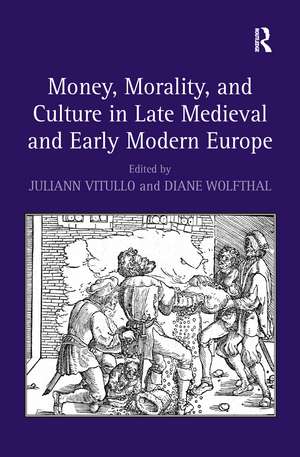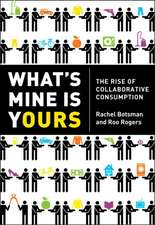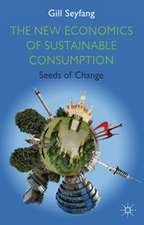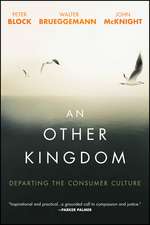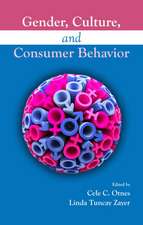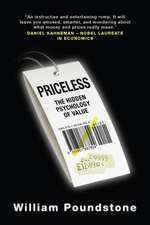Money, Morality, and Culture in Late Medieval and Early Modern Europe
Autor Diane Wolfthal Editat de Juliann Vitulloen Limba Engleză Paperback – 30 noi 2016
| Toate formatele și edițiile | Preț | Express |
|---|---|---|
| Paperback (1) | 465.91 lei 6-8 săpt. | |
| Taylor & Francis – 30 noi 2016 | 465.91 lei 6-8 săpt. | |
| Hardback (1) | 1063.41 lei 6-8 săpt. | |
| Taylor & Francis – 28 mai 2010 | 1063.41 lei 6-8 săpt. |
Preț: 465.91 lei
Nou
Puncte Express: 699
Preț estimativ în valută:
89.16€ • 96.82$ • 74.90£
89.16€ • 96.82$ • 74.90£
Carte tipărită la comandă
Livrare economică 22 aprilie-06 mai
Preluare comenzi: 021 569.72.76
Specificații
ISBN-13: 9781138253636
ISBN-10: 1138253634
Pagini: 262
Dimensiuni: 156 x 234 mm
Greutate: 0.37 kg
Ediția:1
Editura: Taylor & Francis
Colecția Routledge
Locul publicării:Oxford, United Kingdom
ISBN-10: 1138253634
Pagini: 262
Dimensiuni: 156 x 234 mm
Greutate: 0.37 kg
Ediția:1
Editura: Taylor & Francis
Colecția Routledge
Locul publicării:Oxford, United Kingdom
Cuprins
Contents: Introduction; Part I Defining the Players: 'Nerehand nothyng to pay or to take': poverty, labor, and money in 4 Towneley plays, Robert S.Sturges; The incivility of Judas: 'manifest' usury as a metaphor for the 'infamy of fact' (infamia facti), Giacomo Todeschini; The Devil's evangelists? Moneychangers in Flemish urban society, James M. Murray. Part II Questions of Value: Whores as shopkeepers: money and sexuality in Aretino's Ragionamenti, Ian Frederick Moulton; The sound of money in late-medieval music, Michael Long; Anxieties of currency exchange in Middleton and Rowley's The Changeling, Bradley D. Ryner. Part III Wealth and Christian Ideals: 'To honor God and enrich Florence in things spiritual and temporal': piety, commerce and art in the Humiliati Order, Julia I. Miller and Laurie Taylor-Mitchell; Trading values: negotiating masculinity in late medieval and early modern Europe, Juliann Vitullo and Diane Wolfthal; Abigail Mathieu's civic charity: social reform and the search for personal immortality, Kathleen Ashley; Bibliography; Index.
Notă biografică
Juliann Vitullo is Associate Professor of Italian and Associate Director of the School of International Letters and Culture at Arizona State University. Her current research explores the rise of the monetary economy and masculinity, particularly fatherhood, in early modern culture. Diane Wolfthal is Minter Chair in the Humanities and Professor of Art History at Rice University. Her books explore images of rape, Early Netherlandish canvases, and Yiddish book illustrations.
Recenzii
'Admirably pan-European in its subject matter, this volume engages with a range of disciplines - art history, economic history, and musicology, as well as English, Italian, and comparative literature. Exhaustively researched and well written, this is a very strong collection.' Linda Woodbridge, Penn State University, USA 'The range of material is indeed impressive - there is plenty to learn outside of one's own discipline, whatever it may be. Moreover, the essays are generally well-researched and well-argued.' Renaissance Quarterly 'The contributors include economic historians, a musicologist, art historians, and literary critics who examine a pan-European range of cultural and economic phenomena from the thirteenth through to the seventeenth century. The interdisciplinary character and unusual perspectives of this volume make is a welcome contribution to an area traditionally dominated by economic historians.' Economic History Review
Descriere
One of the first volumes to explore the intersection of economics, morality, and culture, this collection analyzes the role of the developing monetary economy in Western Europe from the twelfth to the seventeenth century. The contributors”scholars from the fields of history, literature, art history and musicology”explore how money infiltrated every aspect of everyday life, modified notions of social identity, and encouraged debates about ethical uses of wealth.
